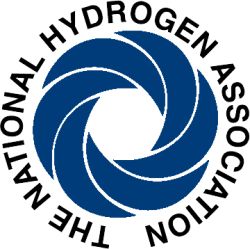Honda FCX Clarity - Click above for a gallery
The message has been hinted at before, but the federal government is now serious about shifting the focus away from hydrogen and onto plug-in vehicles. In an important statement yesterday, Department of Energy Secretary Steven Chu said that hydrogen vehicles are still 10 to 20 years away from practicality and that millions in federal government funding for hydrogen programs will be cut from the 2010 federal budget. Chu said, "We asked ourselves, 'Is it likely in the next 10 or 15, 20 years that we will covert to a hydrogen car economy?' The answer, we felt, was 'no'" (well, duh).
Did we mention this is a big reversal? Just a few weeks ago, Chu announced $41.9 million for hydrogen projects. A major switch, but not totally surprising. During the presidential campaign last fall, Obama did call for a million PHEVs by 2015.
The U.S. Fuel Cell Council the National Hydrogen Association quickly released a joint statement against the budget cuts. The statement reads, in part:
The cuts proposed in the DOE hydrogen and fuel cell program threaten to disrupt commercialization of a family of technologies that are showing exceptional promise and beginning to gain market traction. Fuel cell vehicles are not a science experiment. These are real vehicles with real marketability and real benefits. Hundreds of fuel cell vehicles have collectively logged millions of miles.
Read it in full after the jump. There will be much more to come on this, without a doubt. The fallout will take months (years?) to fully understand.
UPDATE: Greg Blencoe writes in to remind us of the 25 things he wishes Obama knew about hydrogen cars.
[Source: Green Car Advisor, U.S. Fuel Cell Council the National Hydrogen Association, NYTimes]
PRESS RELEASE:
Hydrogen and Fuel Cell Associations Criticize DOE Program Cuts
Official Joint Statement
Washington, DC
 May 7, 2009-The National Hydrogen Association (NHA) and U.S. Fuel Cell Council (USFCC) issued the following joint statement regarding the Obama Administration's FY 2010 budget request for the U.S Department of Energy:
May 7, 2009-The National Hydrogen Association (NHA) and U.S. Fuel Cell Council (USFCC) issued the following joint statement regarding the Obama Administration's FY 2010 budget request for the U.S Department of Energy:
"The cuts proposed in the DOE hydrogen and fuel cell program threaten to disrupt commercialization of a family of technologies that are showing exceptional promise and beginning to gain market traction.
"Fuel cell vehicles are not a science experiment. These are real vehicles with real marketability and real benefits. Hundreds of fuel cell vehicles have collectively logged millions of miles.
"Both the National Academy of Sciences and NHA's recent Energy Evolution report conclude that a portfolio of vehicle technologies is needed to achieve the nation's energy and environmental security goals and that hydrogen is essential to success. Hydrogen also advances the Obama Administration's goals of greener power generation and a smarter power grid.
"The newest fuel cell vehicles get 72 miles per gallon equivalent with no compromise in creature comforts. Fuel cell buses operating in revenue service achieve twice the fuel economy of diesel buses. Hydrogen production costs are already competitive with gasoline. Projected vehicle costs have been reduced by 75%. These are accomplishments of the Department's own program in partnership with industry. It would truly be a government waste to squander them by walking away just as success is in sight.
"The National Academy recommended a portfolio approach and we are frankly puzzled at the Energy Department's decision to ignore that recommendation even as the Department uses other material from the same report to justify its proposed cut.
"We are also concerned that the Department appears to be walking away from its Market Transformation activities, which support fuel cell deployment in early commercial applications. This Congressionally-mandated program is demonstrating the ability of fuel cells to provide a competitive and green alternative to battery-based systems in vehicles and in power supply.
"Finally, we are concerned that the Department has proposed to cut funds for the Solid State Energy Conversion Alliance (SECA). SECA success could dramatically lower the cost of carbon sequestration, improve power plant efficiency, and enable a virtually pollution-free coal plant in the future. Additional funding will hasten SECA progress."
The NHA and USFCC collectively represent more than 200 companies and organizations.
# # #
About the U.S. Fuel Cell Council
The USFCC is an industry association dedicated to fostering the commercialization of fuel cells in the United States. Our members include the world's leading fuel cell developers, manufacturers, suppliers and customers. www.usfcc.com
About the National Hydrogen Association
The National Hydrogen Association (NHA) is the premier hydrogen trade organization led by over 100 companies dedicated to supporting the transition to hydrogen. Efforts are focused on education and outreach, policy, safety and codes and standards. Since 1989, the NHA has served as a catalyst for information exchange and cooperative projects and continues to provide the setting for mutual support among industry, research and government organizations. www.HydrogenAssociation.org




Sign in to post
Please sign in to leave a comment.
Continue